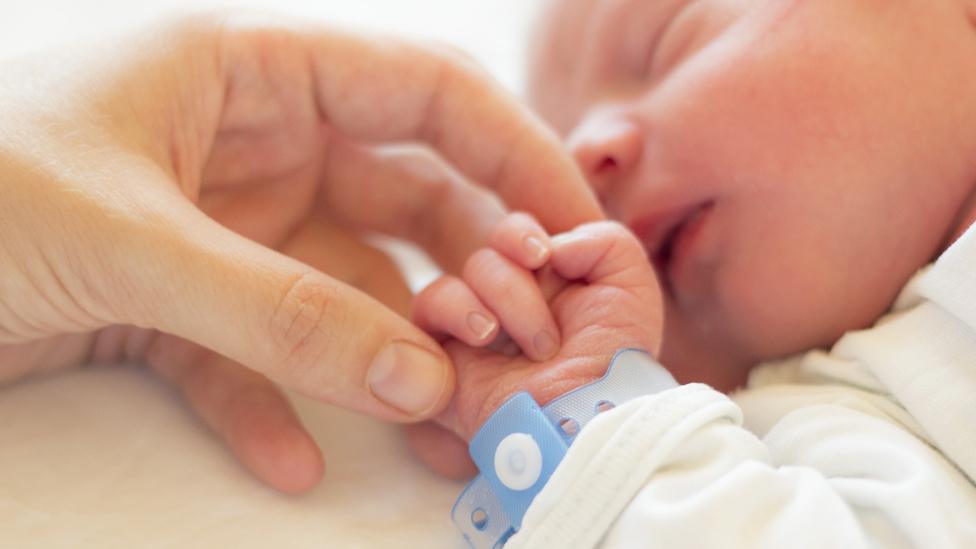'It is scary, but it is better to know'
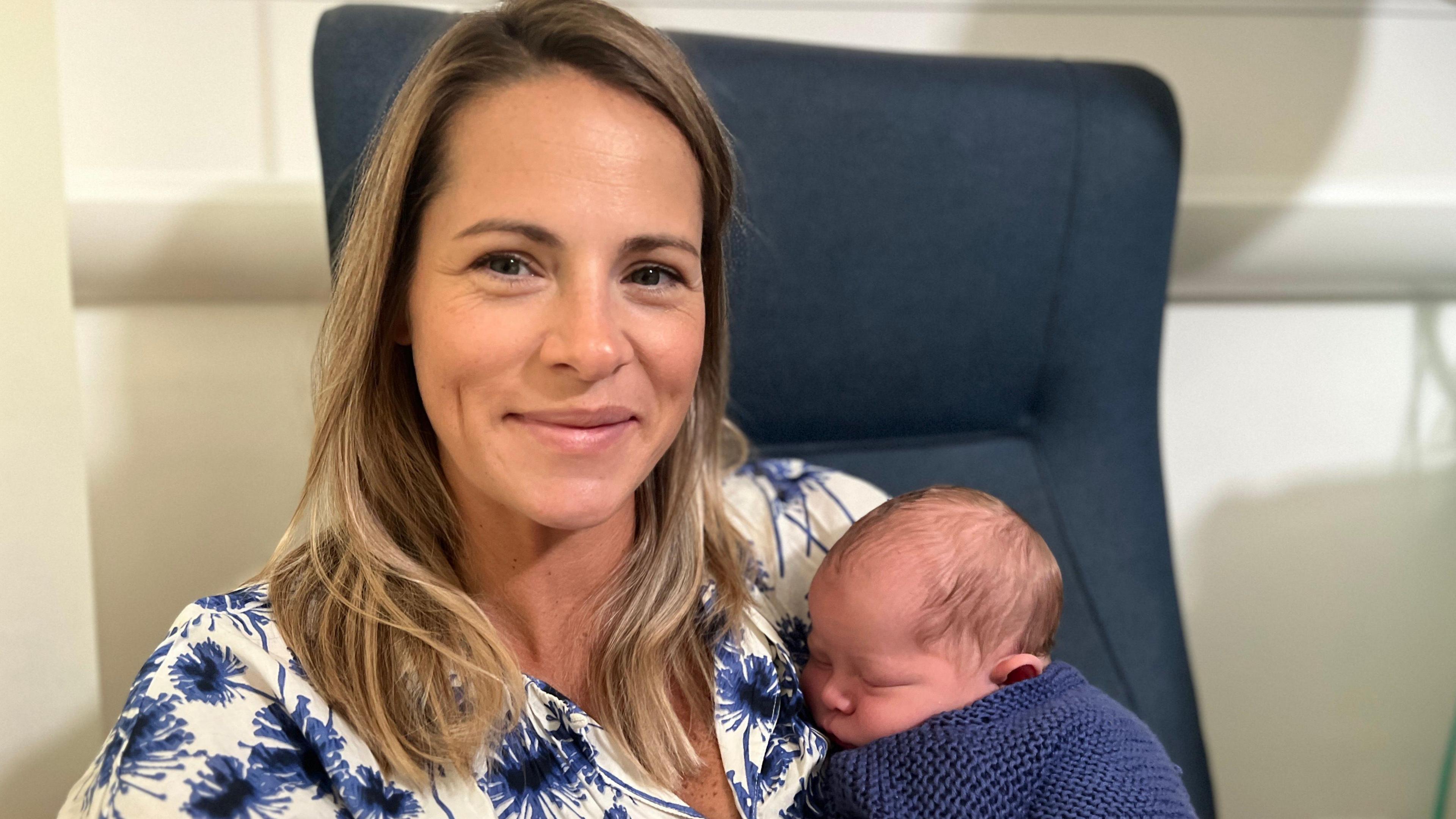
Jessica Williams believes "any advancements of research are going to be good for worried parents"
- Published
A couple whose newborn baby has been tested for hundreds of rare genetic conditions said it would mean "we're going to be prepared for anything that comes down the line".
Jessica and Pete Williams' son Orlando is one of dozens of babies whose entire DNA genome has been screened at The Rosie Hospital, Cambridge, as part of the national Generations Study.
The project can detect 200 rare diseases, all treatable on the NHS, which means conditions can be diagnosed, monitored and treated earlier.
Consultant Katarzyna Gajewska-Knapik said: "We aim to find some of the nine babies born every day in the UK with rare genetic conditions for which early diagnosis and treatment can improve their health."
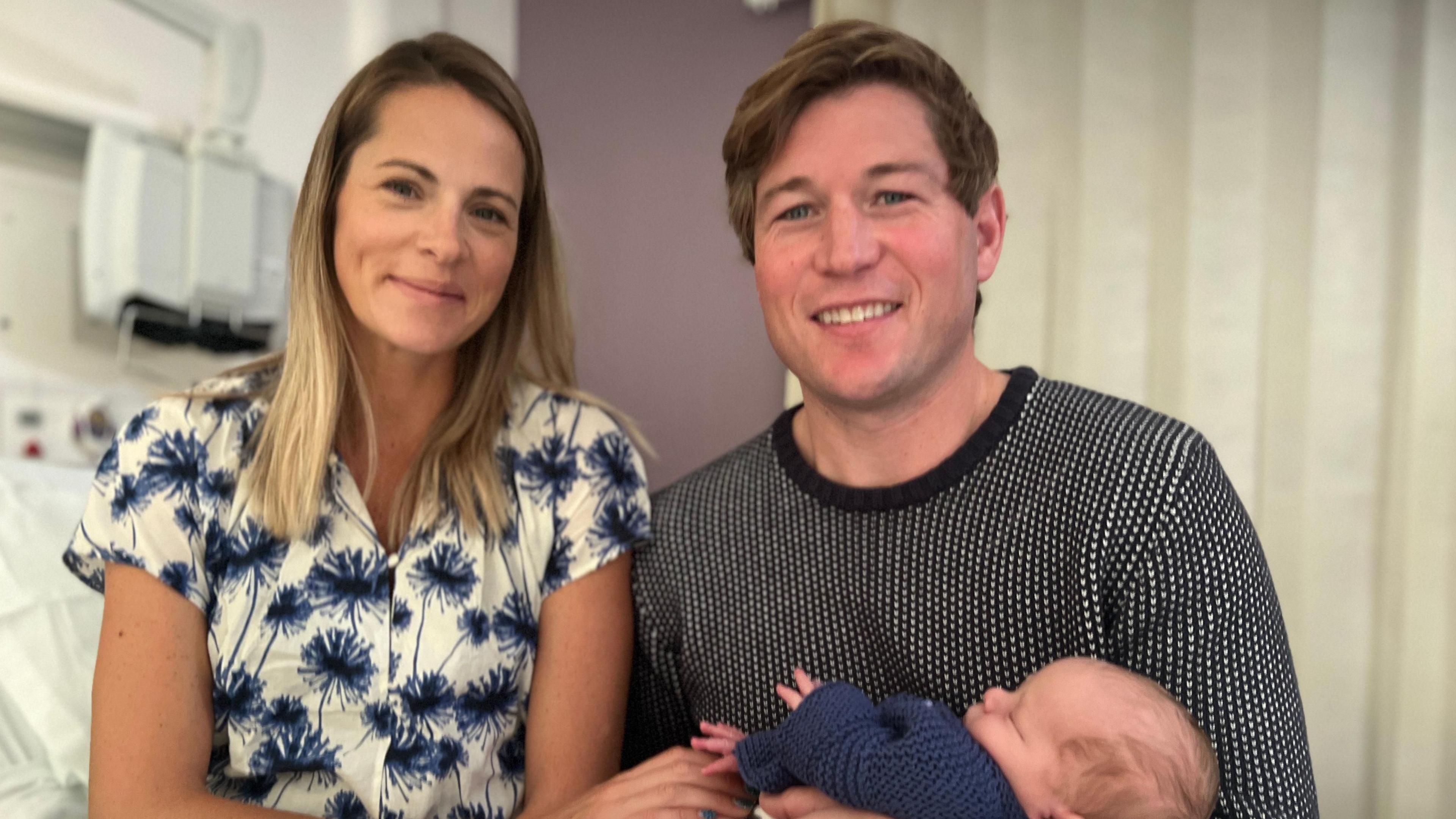
Jessica and Pete Williams signed up their recently-born second son and they should receive the results within 28 days if a condition is suspected
Ms Williams urged other parents to consider taking part in the project, saying: "It is quite scary to think I might find out something that is quite scary for [Orlando] in the future, but I think it's better to know than not to know and it sort of outweighs the negatives."
Up to 100,000 newborn babies in England are expected to take part in the study, led by Genomics England.
The Rosie, part of Cambridge University Hospitals, was one of the first NHS trusts to sign up, external.
The blood samples, taken from babies' umbilical cords, will help doctors detect several gene disorders include haemophilia and spinal muscular atrophy.
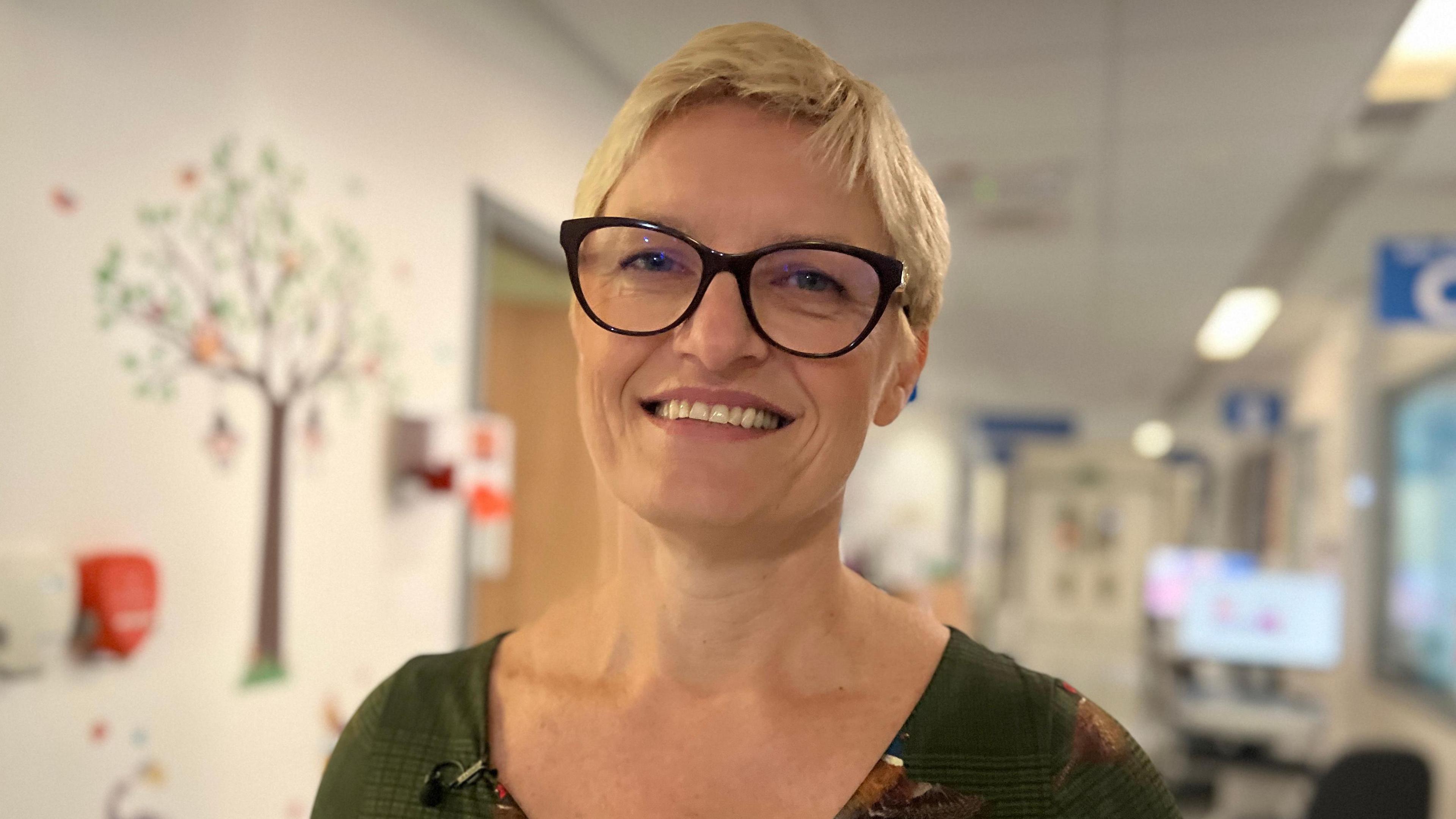
Consultant Katarzyna Gajewska-Knapik said "we can alleviate the symptoms" of some conditions, while others "can be treated completely"
Dr Gajewska-Knapik, a consultant in obstetrics and feto-maternal medicine, said: "This is a ground-breaking project which has huge potential.
"Not only that we can diagnose 200 genetic conditions, there is also a part of the project to understand further the linkage between genetic conditions and between the spelling mistakes in our genome - what is the linkage and how we can tackle some of these diseases."
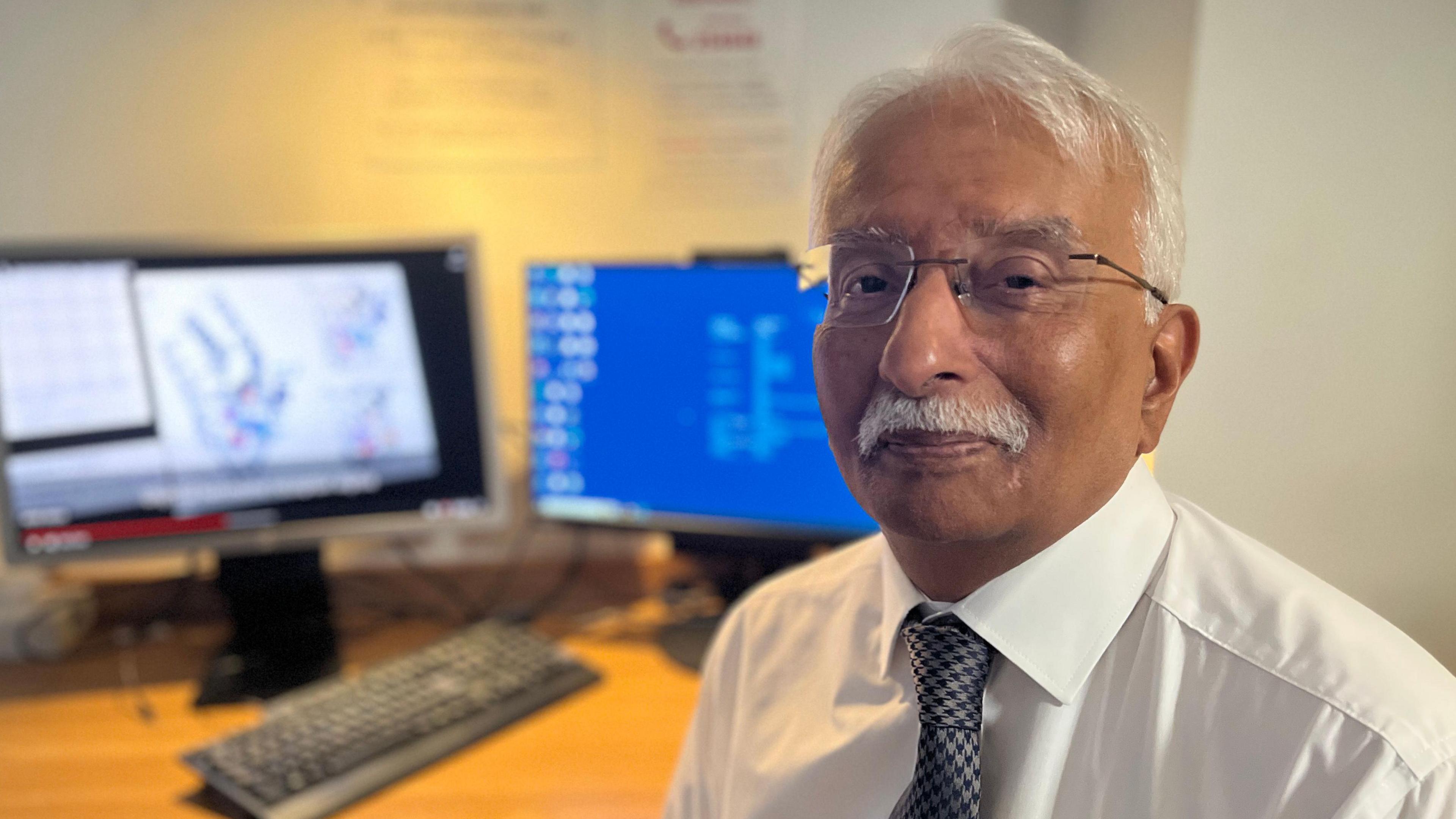
Krishna Chatterjee has already seen the difference earlier DNA screening can make to some of his patients
Sarah Everitt wished the study had been available when her son was first born.
Owen, who is now 10, was diagnosed aged four with a genetic condition called resistance to thyroid alpha after years of uncertainty, having taken part in the 100,000 Genomes Project, also run by Genomics, external.
Prof Krishna Chatterjee, consultant endocrinologist, said: "It's been very gratifying, having made this rare diagnosis, to see that he has responded to therapy with thyroid hormones."
The Generations Study is not intended to replace NHS blood spot screening - also known as the heel prick test, external, which is used to detect conditions including sickle cell disease and cystic fibrosis.
Get in touch
Do you have a story suggestion for Cambridgeshire?
Follow Cambridgeshire news on BBC Sounds, Facebook, external, Instagram, external and X, external.
Related topics
- Published3 October 2024
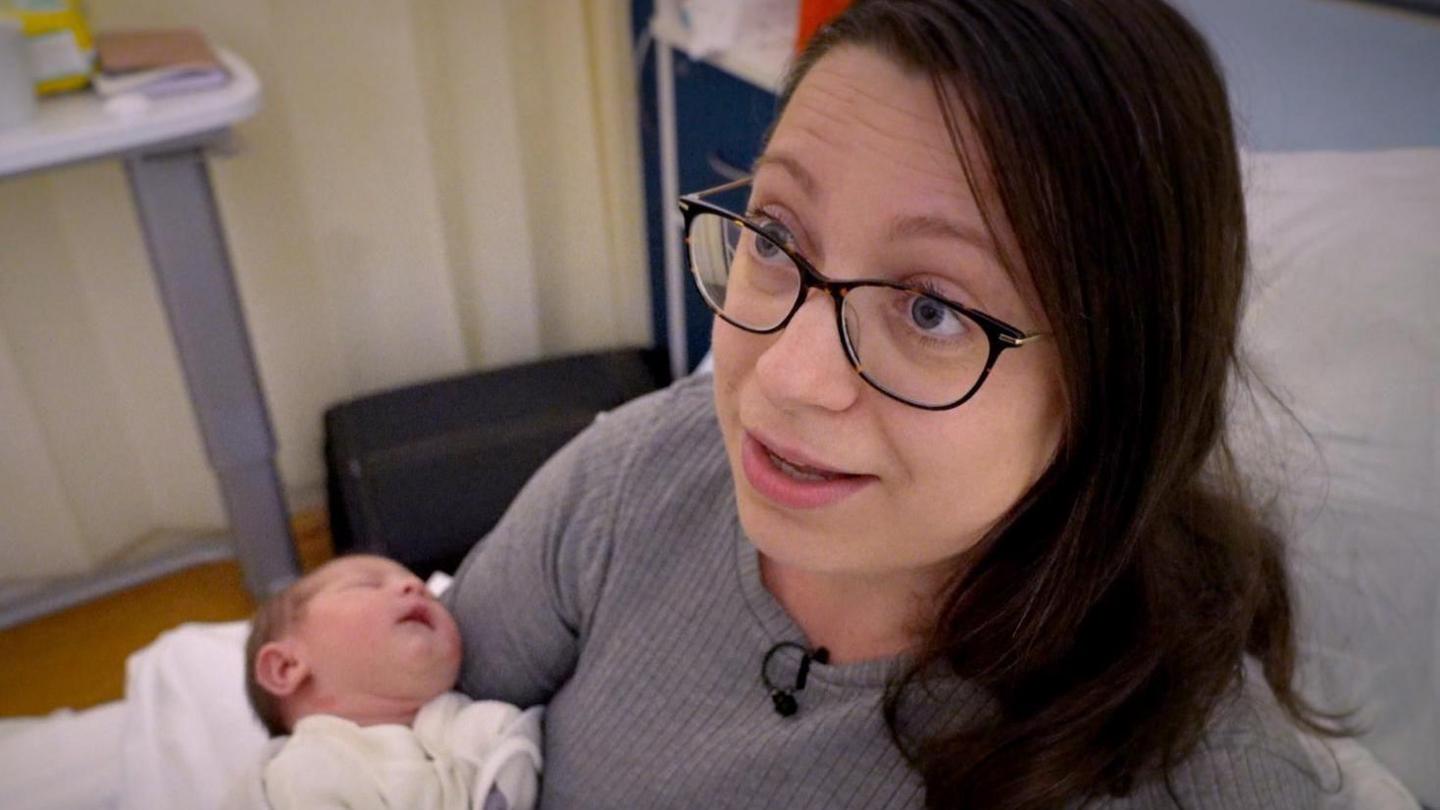
- Published27 August 2024

- Published26 September 2023
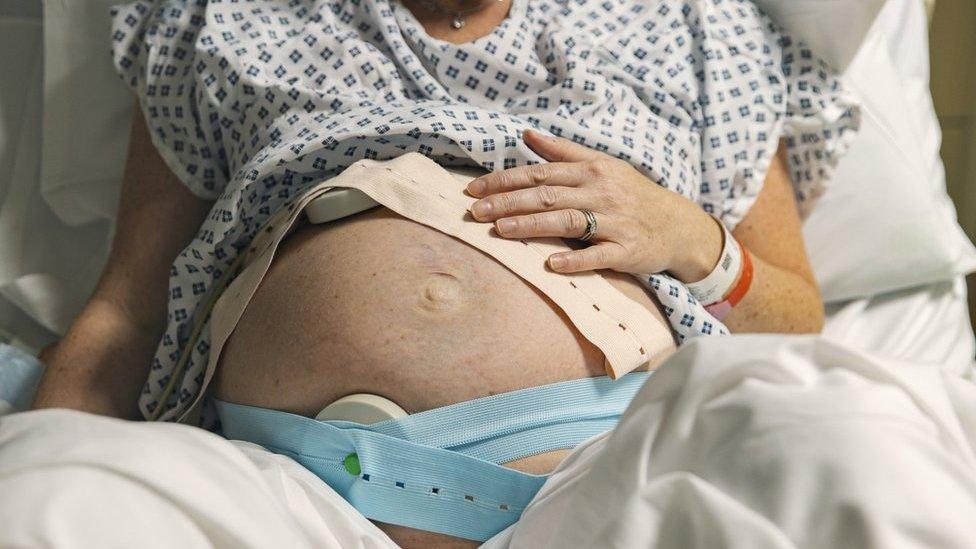
- Published13 December 2022
